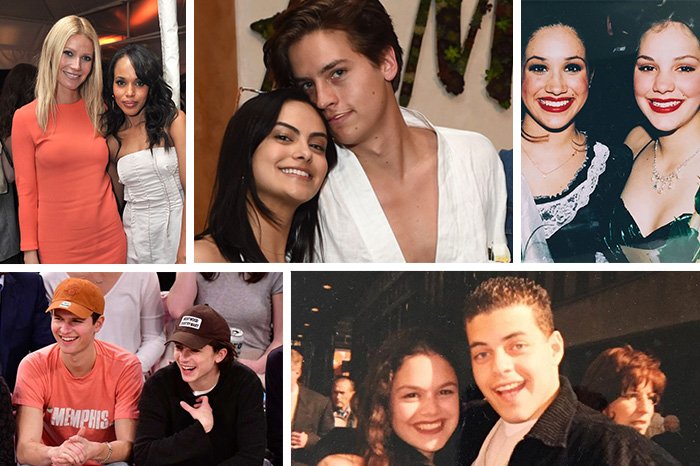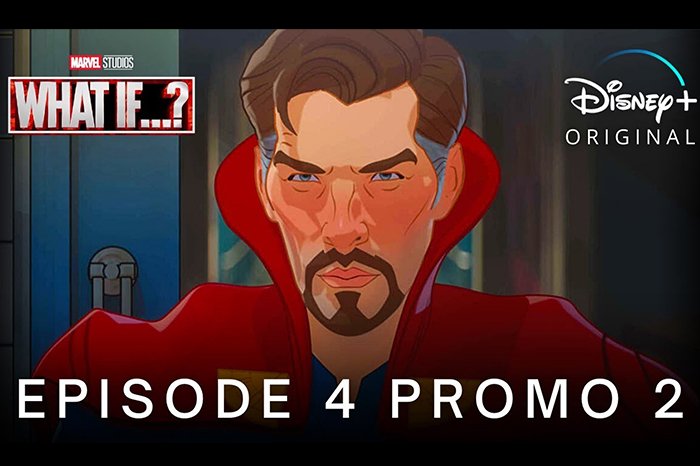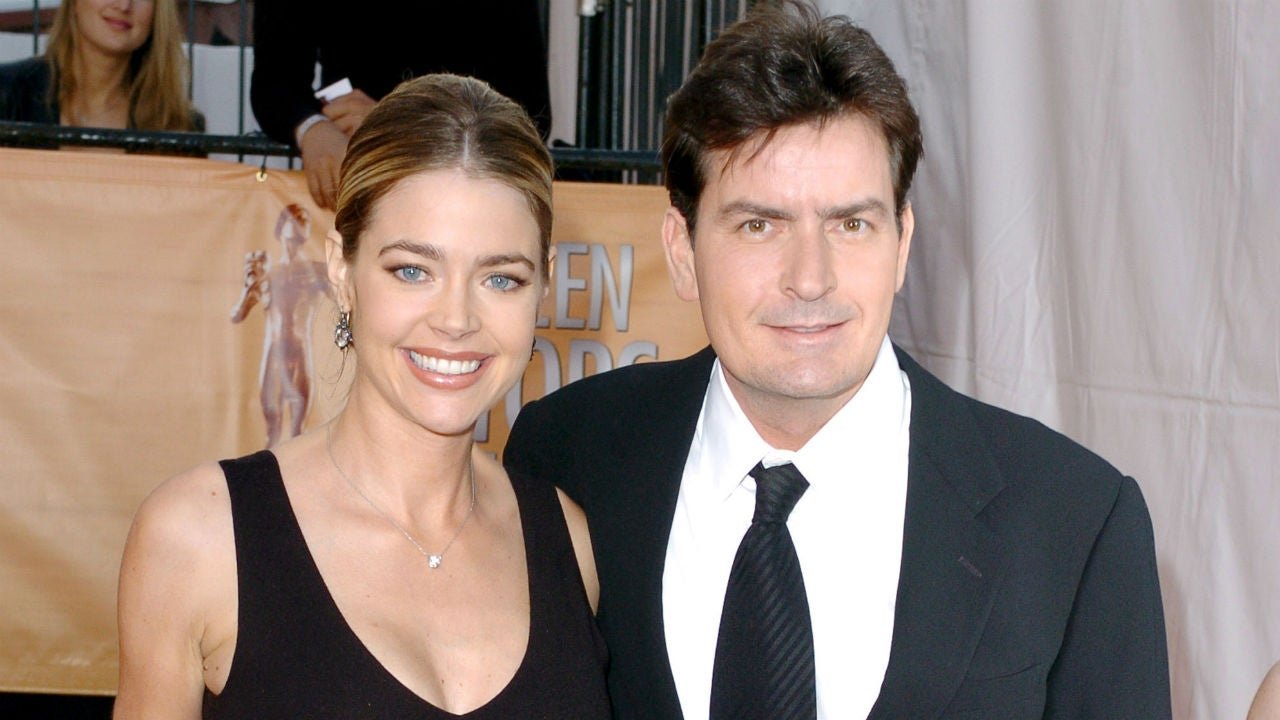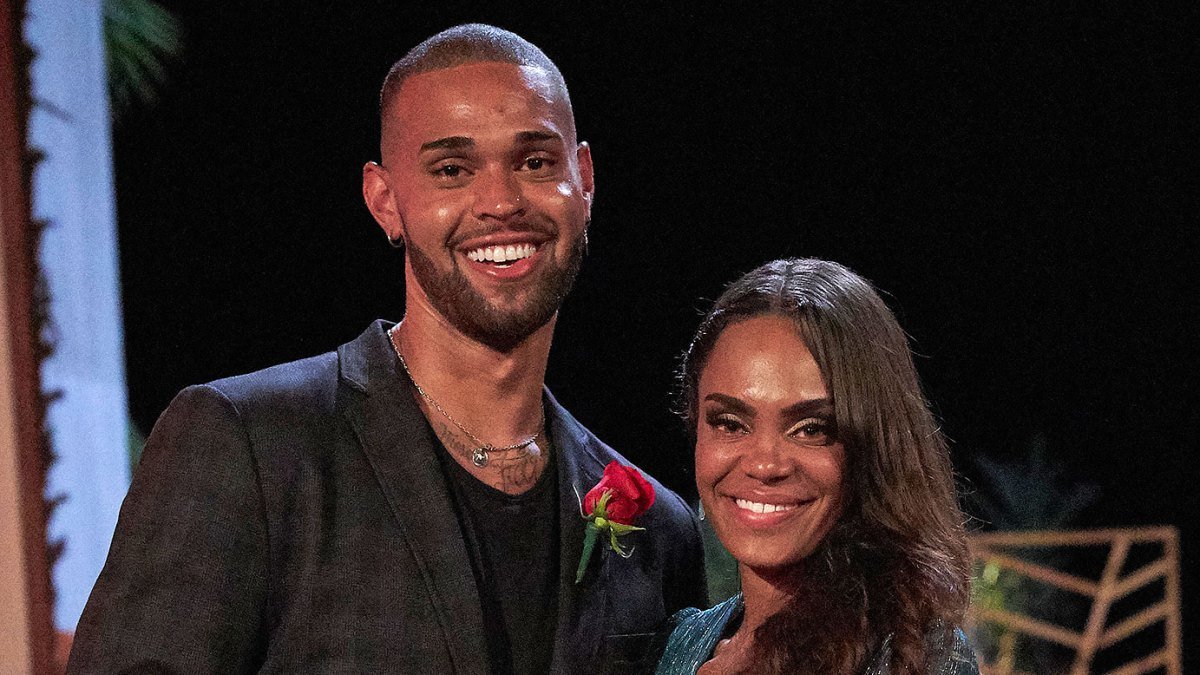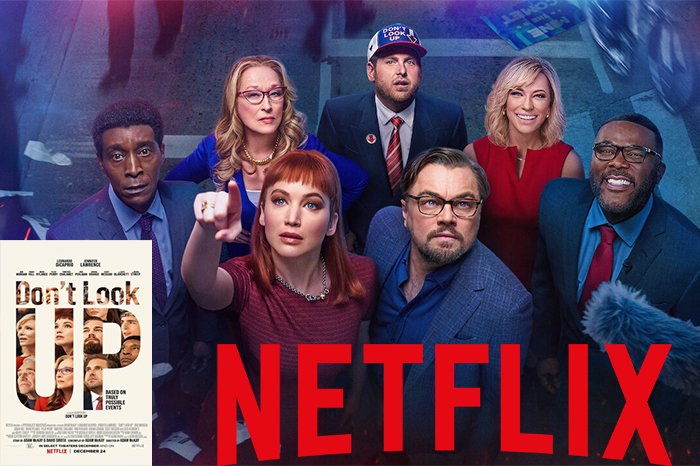 Image Source: Wikipedia, Netflix
Image Source: Wikipedia, Netflix
Art has an uncanny way of making social issues stand out but make light of it. There are countless works of fiction, fantasy, and cinema that embark upon the journey of strict criticism of contemporary societies using humor and satire as a way to propel the narrative further. Don't Look Up by director and writer Adam McKay is such a work of fiction, but if you look closely at the theme, it really is not as fictional as you might otherwise want it to be.
The film stars Leonardo DiCaprio as Randall Mindy and Jennifer Lawrence as Kate Dibiasky, two astronomy grad students. They discover a comet hurtling towards earth at a distance not so comfortable for inhabitants of the earth, and when they try warning the people in control about the dangers of the comet, they are greeted with radio silence and virtually no concern, whatsoever.
The two are faced with society too busy to look up from their phones; and social media feeds, as they shout at the top of their lungs that earth might be nearing a drastic event soon. They also try passing on the information to the president of the U.S., played by Meryl Streep but are welcomed by a similar nonchalant approach. Of course, the narrative has a distinct touch of chastising the political scene of the country and what people tend to think of scientists, all in the bounds of humor and a bit of satire.
The director hopes to change the perception of the public when it comes to science, especially because the general society has never been more disinterested in the marvelous inventions and discoveries made in the past decade than ever.
Leonardo DiCaprio shared, "Adam created this film, which was about the climate crisis, but he created a sense of urgency with it by making it about a comet that’s gonna hit Earth within six months’ time," making people see that the tragedy could strike far sooner than they were initially led to believe.
Providing his take on how science presently is in the confines of the political scene of countries, he said, "Science has become politicized. There are alternative facts. And I was just thankful to play a character who’s based on so many of the people that I’ve met from the scientific community, and in particular, climate scientists who’ve been trying to communicate the urgency of this issue and feeling like they’re, subjected to the last page on the newspaper."
Jennifer Lawrence reflected on similar thoughts, adding, "I think Leo said it perfectly. It’s just so sad and frustrating to watch people who have dedicated their lives to learning the truth be turned away because people don’t like what the truth has to say."
Director Adams explained that he has been alarmed by the state of obliviousness the general public is in when it comes to climate change. People know that it is happening, but they don't fear it because it is not happening fast enough or because they see no immediate threat to their life. Creating a humorous story around it while dulls the impact of the powerful narrative, but still gives the audience something to think about because they are more likely to pay attention to something that makes them laugh than someone telling them that they will die in the next 30 years due to global warming.
The director said, "We were talking about how we wanted to deal with this subject, the climate crisis, which is so overwhelming and it’s arguably the greatest threat to life in the history of mankind, and we just felt like it can almost be like an animal attacking you."
He elaborated, "But if you’re able to laugh, that means you have some distance, and I actually think that’s really important. You can feel urgency, and you can feel sadness, and you can feel loss while also having a sense of humor. That was really the intention with this movie." Most people would feel more connected with the climate change narrative when presented in this manner.
Hence, the director continued, "We get hit with thumping doomsday talk quite a bit, which is totally legit when it comes to climate change. But I did think it was important that people be allowed to laugh and have some distance. It’s also a great unifier. You can’t really fake laughter. It’s not a political thing. They’ve tried, but it never really works when you try to fake that. So, that was the thinking behind it."
The film is really not about picking political sides, as much of it is about bringing the fact into sharp contrast that no political party is paying attention to the threat at all. The same lack of presentation resonated with Leonardo and Jennifer and made them latch onto the idea of this film that would call out people to come together despite their political inclinations and make a change. After all, there is only one planet earth, right?
“Regardless of how you voted, I think we all have to admit seeing the President of the United States float the idea of ingesting bleach to deal with a medical emergency is an unusual situation,” humored Adams. The big political blunder gave the director the idea for this film, as he said, “When that happened, I right away texted my producer, Kevin Messick, and texted Leo, and Jen was like, Okay, we’re gonna make this a little crazier.’”
 Don't Look Up is now premiering on Netflix; Credits: Netflix
Don't Look Up is now premiering on Netflix; Credits: Netflix
The film has been released on Netflix as of December 10 and has already garnered a great number of great reviews.

